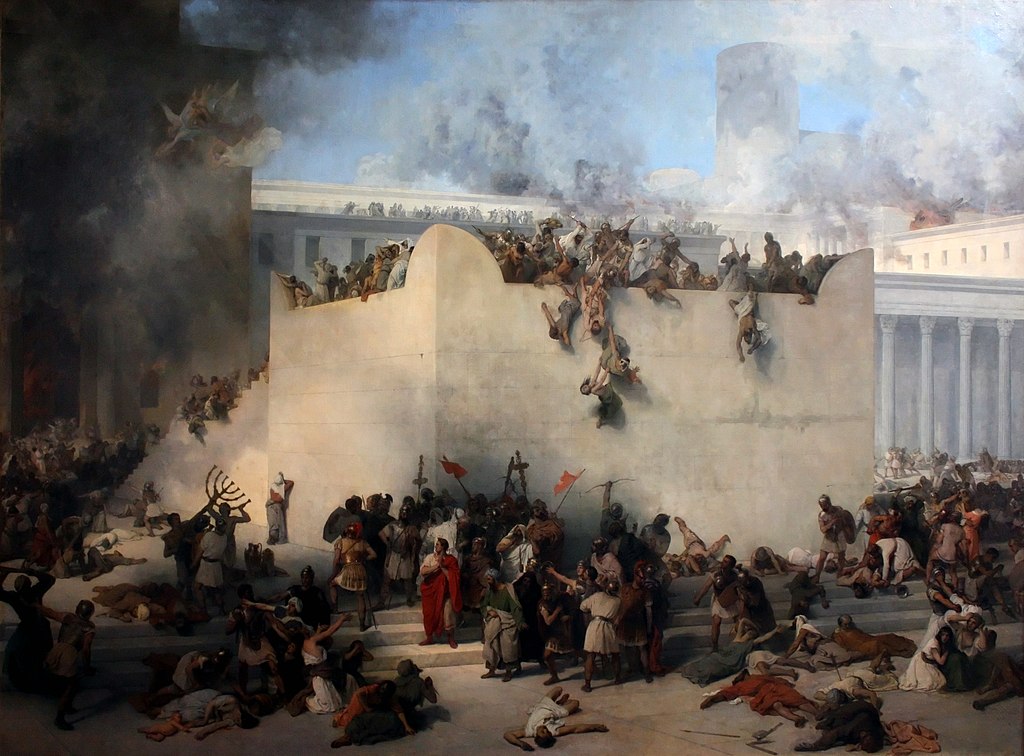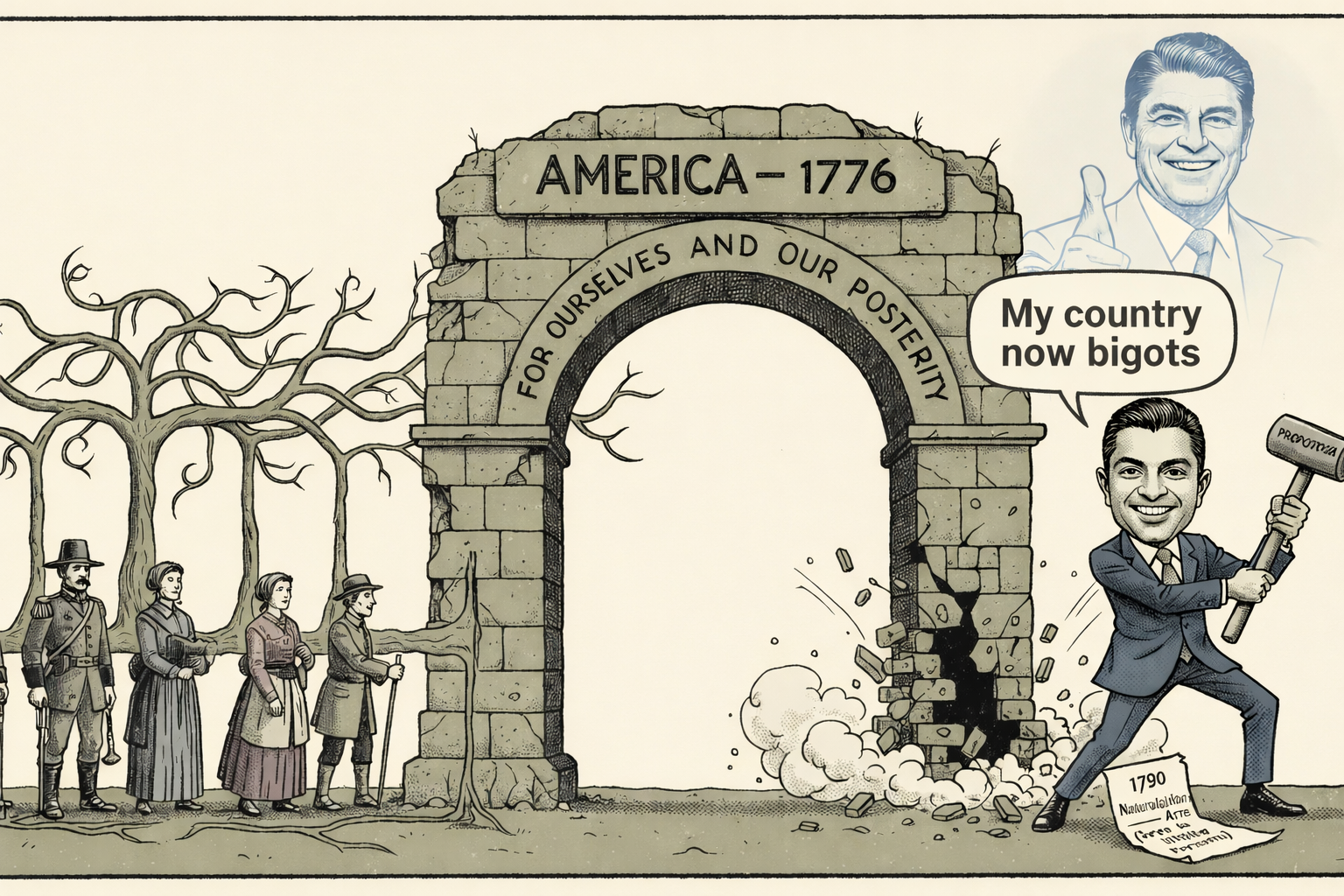In part 1 of this series, we discussed the importance of having a correct understanding of Matthew 24 and the book of Revelation so we can develop long-term strategies against the New World Order and future enemies that will seek to oppress the Church. In part 2 we examined two issues. First, was the disciples question asking about “the end of the [old covenant] age” (not the end of world history) and how it did pass away in Jesus’ contemporary “this generation” (Mt. 24:3, 34). And secondly, we demonstrated how Jesus taught the general signs would be fulfilled during the same time frame and were.
I left you hanging a bit at the end of part 2 with the seemingly impossible task of demonstrating how the gospel was preached “in all the world,” to “all nations,” and to “every creature under heaven.” If we allow Scripture to interpret Scripture this is not as difficult as one would think. So here in part 3 we will take up this challenge along with how the abomination of desolation or the armies surrounding Jerusalem were also fulfilled prior to AD 70. These were the two more specific signs that Jesus taught would mark the “near” end of the old covenant age and Him coming upon the clouds in judgment.
- “And this gospel of the kingdom will be preached in the whole world as a testimony to all nations, and then the end will come.” (Matthew 24:14)
A principle of hermeneutics (the science of interpretation) is called the analogy of faith. This simply means we must allow Scripture to interpret Scripture and that Scripture cannot contradict itself. Notice how the inspired Apostle Paul understood that this sign of the Great Commission had been fulfilled in his generation:
| Prophecy | Fulfillment |
| 1). “And this gospel of the kingdom shall be preached in all the world [Greek oikumene] for a witness unto all nations; and then shall the end come.” (Matt. 24:14) | 1). “But I say, have they not heard? Yes indeed:‘Their sound has gone out to all the earth, and their words to the ends of the world.’” [Greek oikumene] (Rom. 10:18) |
| *One definition of oikumene – “The Roman Empire (Acts 17:6); the Jews in the world (Acts 24:5). Of Palestine and the adjacent countries (Luke 2:1; Acts 11:28).” | |
| 2). “And the gospel must first be published among all nations.” [Greek ethnos] “And Jesus came and spoke to them, saying, ‘All authority has been given to Me in heaven and on earth. Go therefore and make disciples of all the nations.’” [Greek ethnos] “‘. . . I have commanded you; and lo, I am with you always, even to the end of the age.’ Amen.” (Mark 13:10; Matt. 28:19-20) | 2). “…My gospel… has been made manifest, and by the prophetic Scriptures has been made known to all nations. . . .” [Greek ethnos] (Rom. 16:25-26) |
| *These are “all the nations [Greek ethnos] under heaven” that were gathered in (Acts 2:4-5) and they returned to those “nations” to preach the gospel and would be followed up by Paul preaching to those same nations prior to AD 70. | |
| 3). “And He said to them, ‘Go into all the world [Greek kosmos] and preach the gospel to every creature” | 3). “…of the gospel, which has come to you, as it has also in all the world [Greek kosmos], as is bringing forth fruit…” (Col. 1:5-6) |
| *One definition of kosmos – “The then–known world and particularly the people who lived in it…” | |
| 4). “And he said unto them ‘Go into all the world and preach the gospel to every creature.’” [Greek kitisis] (Mark 16:15) | 4). “…from the gospel which you heard, which was preached to every creature [Greek kitisis] under heaven, of which I, Paul became a minister.” (Col. 1:23) |
| *The creation [kitisis] of men – “in rabbinical usage (by which a man converted from idolatry to Judaism was called).” The creation of men is preached to. | |
| 5). “But you shall receive power when the Holy Spirit has come upon you; and you shall be witnesses to Me in Jerusalem, and in all Judea and Samaria, and to the end of the earth/land.” [Greek ge] (Acts 1:8) | 5). “But I say, have they not heard? Yes indeed: ‘Their sound has gone out to all the earth/land [Greek ge], and their words to the ends of the world |
| *One definition of ge – “The then known lands, regions, territories, countries, etc…” |
It’s no accident that the Holy Spirit led the Apostle Paul to use ALL of the very same Greek words Jesus used to describe the extent of the Great Commission — to proclaim this “end” time sign had already been fulfilled and therefore teach an “at hand” and “about to be” Second Coming and resurrection event (Phil. 3-4:5; Acts 24:15YLT; Rom. 13:11-12). I’m not sure how else Paul could have communicated that Jesus’ “end” of the age sign had been fulfilled exactly when Jesus said it would be, within Paul’s contemporary “this generation.”
The Church’s Great Commission today in the new covenant age, post AD 70, is found in Revelation 22:17 where the “Spirit and the Bride” invite sinners from the darkness outside the New Jerusalem to come through her gates through faith and drink the waters of eternal life.
- “Abomination that causes desolation” or “When you see Jerusalem surrounded by armies its desolation has come near” (Mt. 24:15 / Lk. 21:20).
Let’s compare and look at how Matthew and Luke’s parallel accounts fulfill “the end” of the old covenant age “war” and “desolation” of Daniel 9:26-27:
- “And after threescore and two weeks shall Messiah be cut off, but not for himself: and the people of the prince that shall come shall destroy the city and the sanctuary; and the end thereof shall be with a flood, and unto the end of the war desolations are determined.” And he shall confirm the covenant with many for one week: and in the midst of the week he shall cause the sacrifice and the oblation to cease, and for the overspreading of abominations he shall make it desolate, even until the consummation [the end], and that determined shall be poured upon the desolate” (Dan. 9:26-27).
- “So, when you see the abomination of desolation spoken of by the prophet Daniel, standing in the holy place (let the reader understand), then let those who are in Judea flee to the mountains” (Mt. 24:15-16).
- “But when you see Jerusalem surrounded by armies, then know that its desolation has come near. Then let those who are in Judea flee to the mountains, and let those who are inside the city depart, and let not those who are out in the country enter it, for these are days of vengeance, to fulfill all that is written” (Lk. 21:20-22).
Luke’s account of Daniel’s “desolation” differs slightly from Matthew’s. Matthew adds “abomination” with “desolation” and “when you see the abomination of desolation spoken of by the prophet Daniel, standing in the holy place…,” whereas Luke’s account only mentions “desolation” and replaces “standing in the holy place” with “seeing Jerusalem surrounded by armies.” When we first read “holy place” we are tempted to think this is taking place in the temple itself. But as John L. Bray points out,
“…in the Apocrypha (inter-biblical writings) “the holy place” meant the whole area of the “holy land.” In 2 Maccabees 2 it said, “As he promised in the law, will shortly have mercy upon us, and gather us together out of every land under heaven into the holy place.” This included the city and the temple, all of which were looked on as “holy.” The land was called “holy” (2 Maccabees 1:7), and the city was called holy (2 Maccabees 3:1).
Meyer’s Commentary on the New Testament, on Matthew 24:15 says, “Others, and among them de Wette and Baumgarten-Crusius (comp. Weiss on Mark), understand the words as referring to Palestine, especially to the neighborhood of Jerusalem (Schott, Wiesler), or to the Mount of Olives (Bengel), because it is supposed that it would have been too late to seek escape after the temple had been captured, and so the flight of the Christians to Pella took place as soon as the war began” (Meyer, vol. 1, 414-415).
By standing in the holy place, or where it ought not, needs not to be understood the temple only, but Jerusalem also, and, any part of the land of Israel (Lardner, 49).”[1]
Godet agrees but adds the observation that the slight difference is for Luke’s primarily Gentile audience:
“The sign indicated by Luke is the investment of Jerusalem by a hostile army. We see nothing to hinder us from regarding this sign as identical in sense with that announced by Matthew and Mark in Daniel’s words (in the LXX.): the abomination of desolation standing in the holy place. Why not understand thereby the Gentile standards planted on the sacred soil which surrounds the holy city? Luke has substituted for the obscure prophetic expression a term more intelligible to Gentiles.”[2]
Now it is much easier to harmonize Matthew and Luke’s account of Daniel’s abomination that causes or brings about desolation which is connected to the end time war with armies surrounding Jerusalem. Let me harmonize and summarize:
“when you [the disciples and first century Christians] see the abomination of [the Gentile Roman] armies surrounding and standing in/on the holy place of the land of Jerusalem, then know it’s desolation has drawn near. Then let those who are in Judea flee to the mountains, and let those who are inside the city depart…”
Concluding part 3
When we allow Scripture to interpret itself it is not difficult to see how the sign of the gospel being preached throughout the then known world of the Roman Empire marked the “near” “end of the [old covenant] age” and coming of the Lord in judgment upon Jerusalem through the Roman armies. Using a “historical hermeneutic” we must allow the first century writers to define what they mean by “all the world” and “all nations” – not how we might use these terms in English and in our culture.
In part 4 we will pick up the subject of the Great Tribulation and see how it too was fulfilled within Jesus’ contemporary “this generation.” Stay thirsty my friends (Ps. 42:1) and I will see you in part 4.
[1] Bray, Ibid., 58
[2] Godet, F. L. (1881). A Commentary on the Gospel of St. Luke, A commentary on the gospel of St. Luke. (E. W. Shalders & M. D. Cusin, Trans.) (Vol. 2, p. 266). New York: I. K. Funk & co.





